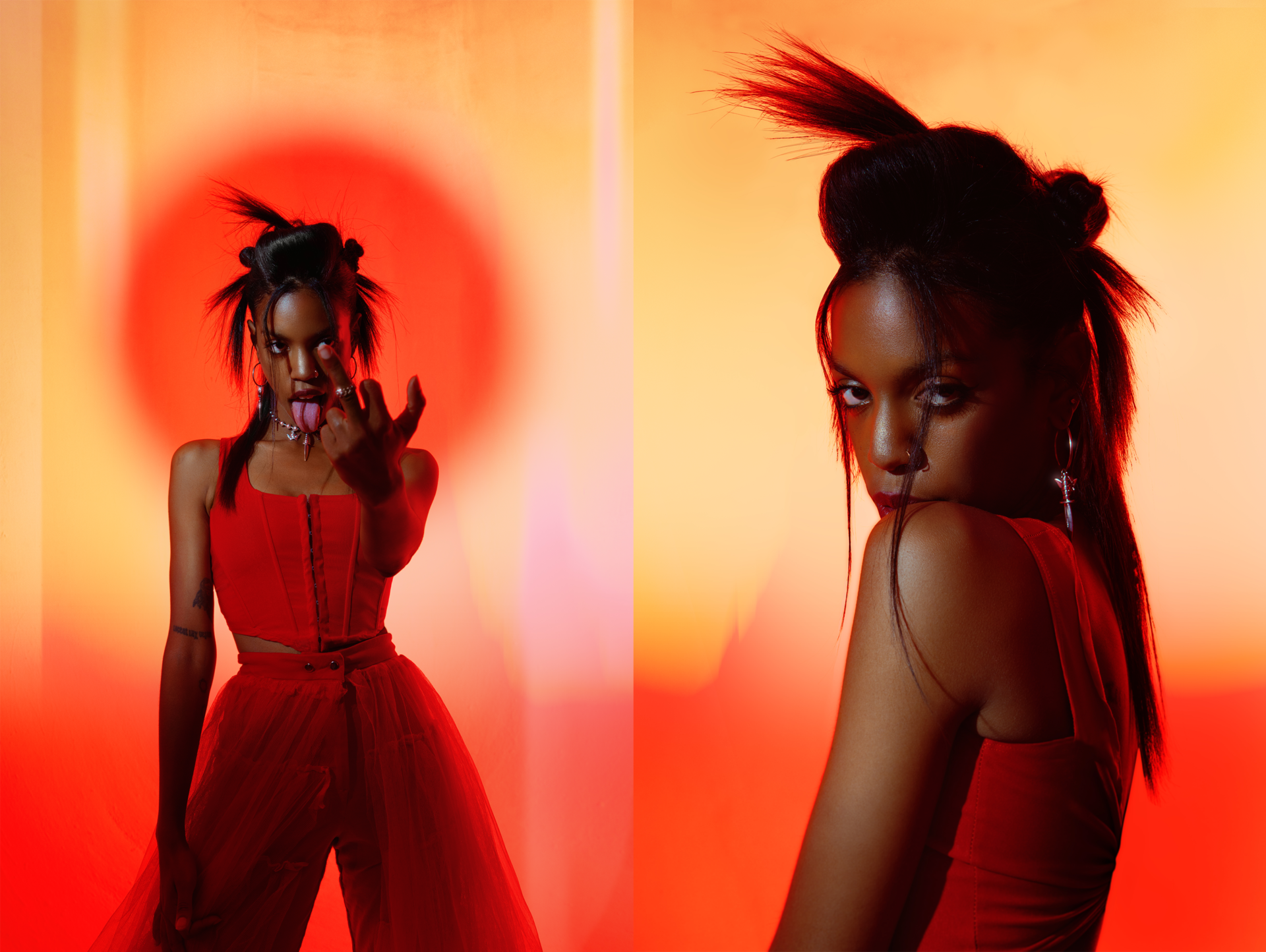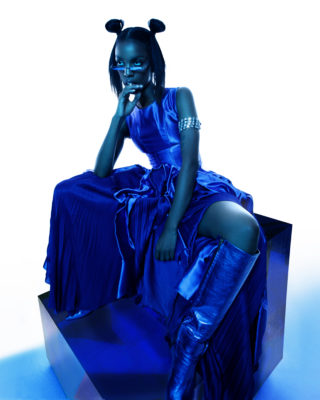
Rising Star BAYLI on Artistic Autonomy and Being Vulnerable in The Digital Age
Music Interviews

An auditory encounter with up-and-coming artist BAYLI is like scattering the labels we place on ourselves over a fan into a whirlwind of originality that demands attention. As an independent songwriter, performer and producer, BAYLI rejects formulaic musicianship by creating a vessel for vulnerability—without creative constraint—in her new EP, Stories II. BAYLI personalizes the cultural shift in the wake of the COVID-19 pandemic, honing her voice with a passion that has amassed a static energy over the last two years. The sincere, six-track Stories II seamlessly binds a sonic scrapbook of grievances, reconciliations and formative moments that are reminiscent of a world trying its best to digitally replicate our deepest needs.
Studying at a fine arts school 10 years ago, BAYLI’s discography began to take shape when she signed with Rick Rubin’s label, Universal Music Group, as the lead vocalist for pop-punk band The Skins, giving her a heaping dose of industry awareness at a young age. “I went my own route,” she says. “I thought it was important as a solo artist to maintain my autonomy and creative freedom as much as possible. I’m not anti-label, but I do love being independent. I’m discovering who I am as a solo artist.”
“You can’t co-opt or adopt someone else’s creative process; you have to find what works for you. It’s really a sacred thing, the creation process.”
The discovery period that began with the launch of her solo career at the brink of the pandemic, which she calls her “sonic journey,” refined BAYLI’s eclectic approach to sound, (not hyperpop, not R&B—but a secret third thing) drawing inspiration from powerhouse female artists such as Amy Winehouse, Rihanna, Gladys Knight and Fiona Apple as well as her New York roots. While cultivating her latest body of work, BAYLI ensured that each recording session, whether in LA, NYC or over Zoom, was a sanctuary for release and fluidity. “You can’t co-opt or adopt someone else’s creative process; you have to find what works for you,” she says. “It’s really a sacred thing, the creation process.”
Drawing strength from solitude, BAYLI wrote lyrics facilitating conversations she couldn’t have face to face, with some songs on the EP serving as remedies for others. Her latest composition illustrates the dichotomy within young people adjusting to life after the social standstill, navigating online relationships and self-worth while wanting to enjoy themselves. “In Stories II, there’s high highs and super lows. There’s been a transformative period, for everyone,” she says. “I think it’s easier to tap into the darkness and be stuck there, so I wanted to make sure there was some fun on this record.”
The pot of gold at the end of the Stories II rainbow is “TELLY BAG,” a bright, pixie-esque beat sharing fleeting sentiments with introspective undertones such as, “Lost track of your full name / Quicker than cocaine / Kiss in the stairway / Get rid of the damn pain” and, “But you’re so straight / And I’m so gay.” Deep cuts such as “Think of Drugs” dissect the lack of connection we often have with our families and our own bodies, seeking solace in substances and teleporting away from our minds at a time when we couldn’t physically go anywhere. “It is a catharsis to write about things like that … It’s a product of our generation,” she says. “There are a lot of songs where I’m calling to people from a distance. The isolation isn’t bad, but it’s just what happened, and I like to reflect on what’s happening in my life. It’s like therapy for me, but there is an ultimate goal of it reaching other people for them to feel seen and heard; sharing things that need to be addressed.”
“Even working in more of the underground, indie spaces, there’s always five to 10 people in my ear telling me to, ‘Try this,’ ‘Work with this person,’ ‘Try this sound.’”
Declaring herself a “songwriter first,” BAYLI uses her skill as a storyteller to ground her sense of direction and sovereignty as an independent artist. “I write for other people. I obviously make my own music; it’s really important that I have control over that myself and don’t give that to a corporation just yet,” she says. “Even working in more of the underground, indie spaces, there’s always five to 10 people in my ear telling me to, ‘Try this,’ ‘Work with this person,’ ‘Try this sound,’” she says. “As an artist, we’re very open people, but you have to stay grounded so you can make the right choices for yourself and not do it for anyone else.”
Marking a return to the stage with an anticipation that has skyrocketed from photoshoots, networking, casting and “putting on the persona of an entertainer,” BAYLI’s words are what she hopes reaches her audience the most. “The songs are the thing that matter most to me, the concepts and the messages I’m relaying through the songs,” she says, citing her sentimental single “Sixteen” as an undeniable “lights up in the air moment” during her live set. BAYLI lets a piece of her soul shine through her work in a way that is as refreshing as it is raw, taking the pen that once boxed her in to instead create a paradigm for persistence.
Head to @baylimusic on Instagram for ticketing information and to hear upcoming songs. Be sure to see BAYLI’s set supporting Magdalena Bay on Nov. 1 at Soundwell, at which she will share her stories as the “best opening show people have seen in a long time,” she says.
Read more from Ashton Ellis:
Punk, Prints and Poltergeists at Copper Palate Press
Redmond Farm Kitchen: Bringing the Country to the City
